Tour button
What 2,000 Guests Wish Operators Knew (But Are Too Polite to Say)
ROLLER's latest research exposes five critical friction points that quietly erode trust, revenue, and loyalty—plus the straightforward fixes that transform frustrated visitors into repeat customers.
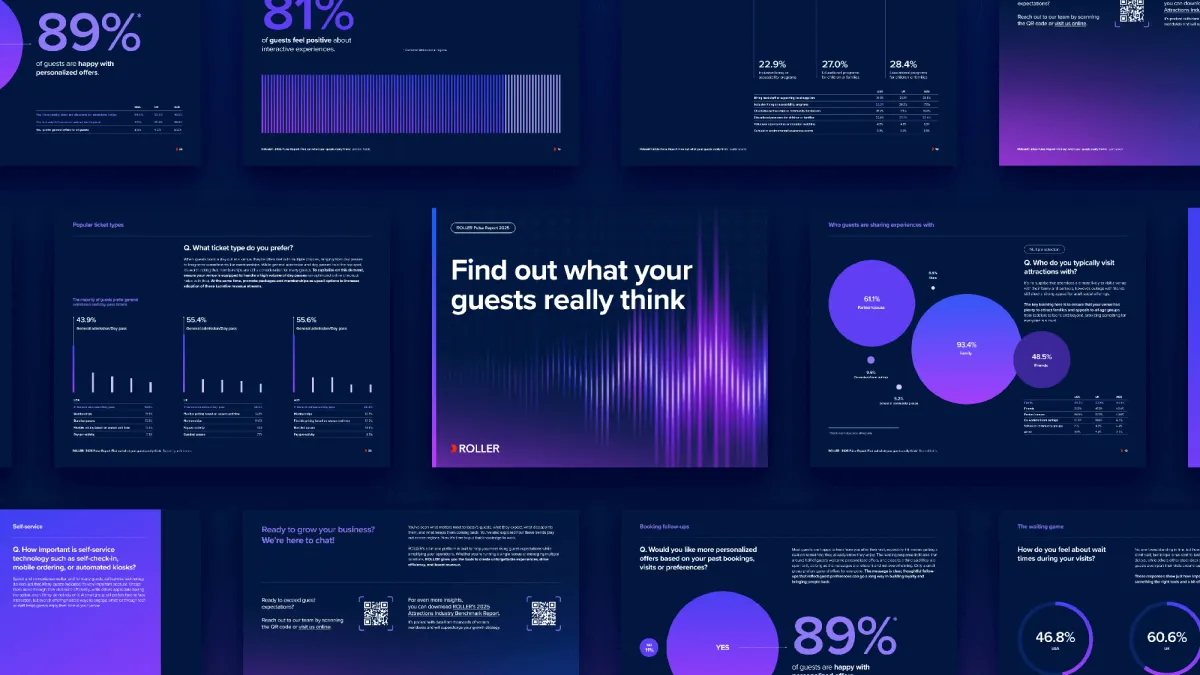

Luke Finn knows why he returns to the same coffee shop whenever he’s visiting Austin, Texas—and it's not just the coffee. “Lots of places make great coffee,” explains the CEO of ROLLER. “But the one I go back to is the one where the staff are warm and welcoming, they know my name, the ordering process is quick, and they've created a space I enjoy spending time in. The coffee might be the same, but it's the experience that keeps me coming back.”
The same principle applies to attractions, but many operators are missing the mark. ROLLER's 2025 Pulse Report—which surveyed 2,000 attraction visitors across the U.S., U.K., and Australia—reveals a costly disconnect. The data shows 62% of guests have abandoned an online booking at some point due to hidden fees or poor user experience. For operators, that represents more than frustration—it's a direct revenue hit. “If even 20% of guests abandon the process, that's $200,000 in revenue at risk for every $1 million in demand,” Finn explains. “Many of those guests won't come back.”
“The biggest gap isn't tech, it's trust,” Finn notes. “Operators who simplify, streamline, and respect their guests' time will win.” The data reveals five critical areas where this trust is won or lost, each representing a solvable business challenge.
The Booking Abandonment Crisis
When guests encounter “hidden fees, long forms, forced account creation, or poor mobile usability,” Finn explains, trust erodes before the experience even begins.
The scope of this problem extends beyond the initial lost sale. “Those who book online typically spend more,” Finn notes, “so operators who invest in removing friction win back lost bookings, earn more per guest, get better returns on their marketing, and keep guests coming back.”
Frustrated guests don't just abandon their current booking—they're less likely to attempt future purchases and may share negative experiences with others. The solution requires rethinking the entire pre-visit journey, from transparent pricing and mobile-optimized checkout flows to pre-visit upsells that feel valuable rather than surprising.
When operators eliminate booking friction, they don't just recover lost revenue—they create the first positive touchpoint in what could become a lasting relationship.
The Wait Time Penalty
According to the survey, 56% of guests cite overcrowding as a major disappointment, but Finn reframes this challenge as untapped potential.
“Big crowds and long lines kill the vibe,” he acknowledges. “But done well, capacity can actually become a lever, not a limitation. With the right tech, you can control guest flow, stagger arrivals, and shape the experience through how you structure ticket types.”
The financial opportunity is significant. Time-based entry systems spread demand without requiring additional staff, while 76% of guests are willing to pay premiums for enhanced experiences. “Line bypass passes, premium access, VIP time slots—this is where you can deliver a better experience while driving higher margins,” Finn explains.
Forward-thinking operators are transforming capacity constraints into revenue-generating experiences that guests actively seek out and pay more to enjoy.
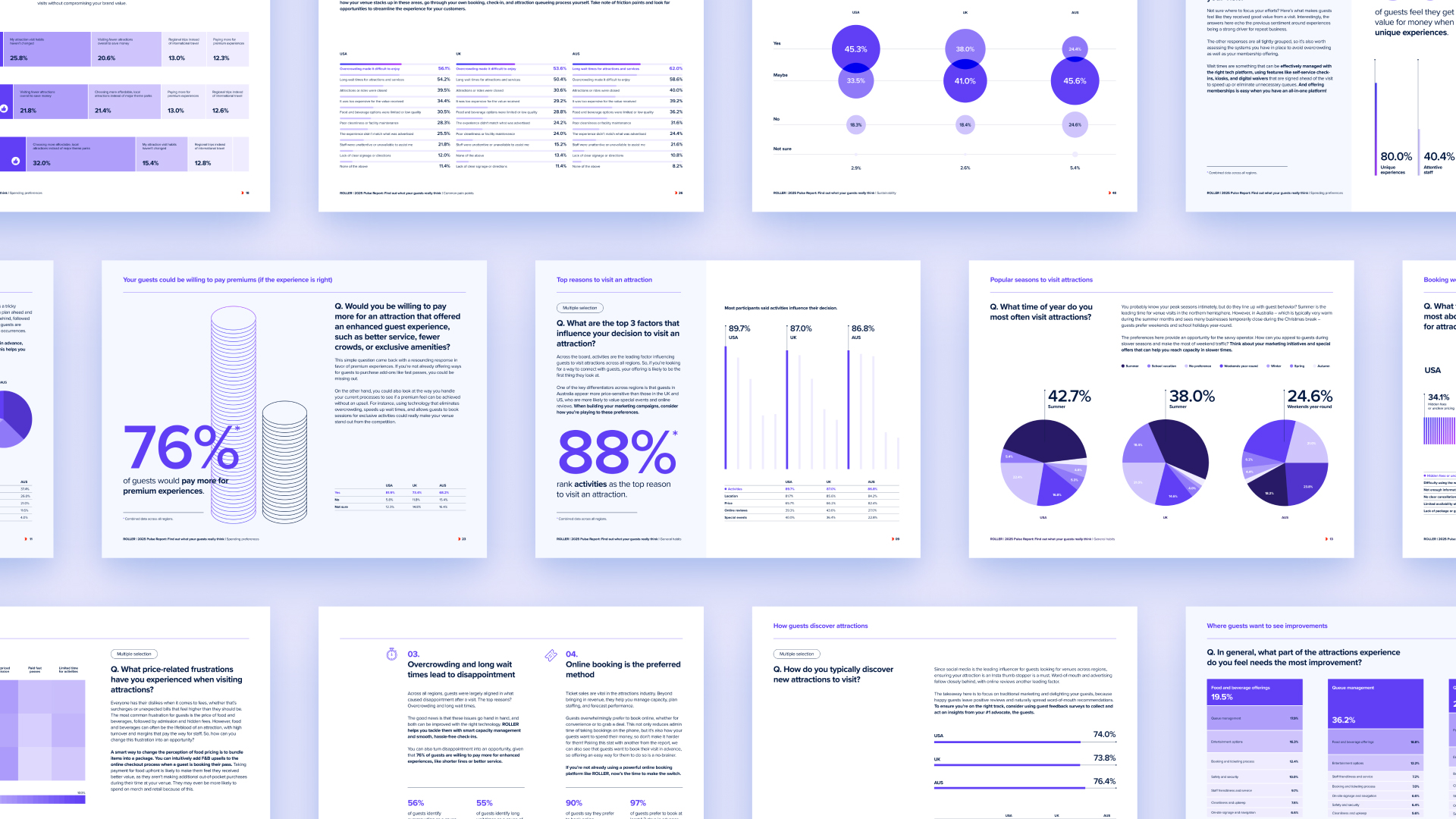
The Self-Service Expectation
The survey shows that 90% of guests now expect self-service options like mobile ordering and digital check-ins, signaling a fundamental shift in what constitutes quality service.
“Doing everything for the guest can feel like great service, but it doesn't scale, it's not efficient, and more importantly, it's often not even what the guest wants,” Finn explains. The Pulse Report confirms guests prioritize speed, autonomy, and control over traditional full-service approaches.
This shift allows operators to redefine hospitality rather than abandon it. “Self-service doesn't remove the human touch—it enables it by freeing staff to focus on the moments that really matter,” Finn notes. “Let tech handle the transactions, so your team can deliver the connection.” When routine processes become self-directed, staff can concentrate on creating the memorable interactions that guests remember long after their visit—the kind that drive positive word-of-mouth.
The Sustainability Factor
According to the data, 79% of guests factor sustainability into their attraction choices, transforming environmental responsibility from a nice-to-have into a competitive necessity.
The challenge isn't capability—it's visibility. “What this report highlights is that sustainability is influencing guest decisions, whether operators realize it or not,” Finn observes. “Many venues are already doing great things in this space. The problem is, guests don't know.”
Beyond marketing benefits, digital-first operations deliver measurable returns. “They reduce paper and printing costs, streamline workflows, eliminate the need for physical waivers, enable digital receipts, and cut waste across the board,” Finn explains. “It's not just greener—it's leaner, faster, and more scalable.”
The sustainability advantage compounds when operators integrate these initiatives into the guest journey and communicate their impact clearly, turning environmental stewardship into both a differentiator and a profit driver.
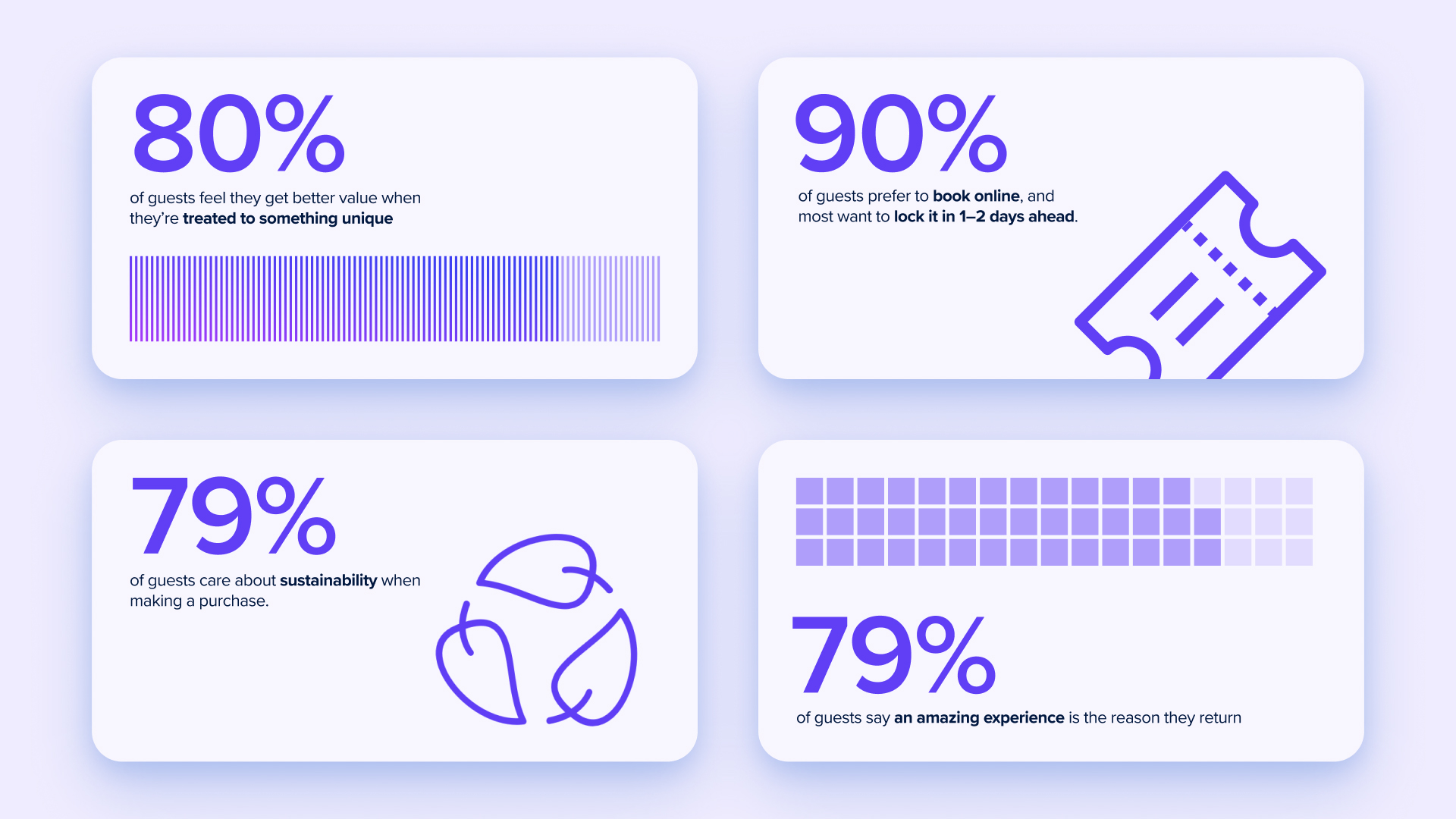
The System Fragmentation Problem
Many operators unknowingly handicap themselves by juggling separate tools for bookings, waivers, point-of-sale, and reporting. This becomes even more critical when considering that ROLLER’s 2025 Pulse Report found that 97% of guests plan their visits at least one day in advance and 90% want to book online.
“Fragmented systems create friction across a business,” Finn explains. “Staff waste time jumping between tools, data is siloed, reporting is inconsistent, and the guest experience feels disjointed.”
When online booking tools don't connect seamlessly to capacity management, staffing systems, and reporting platforms, operators risk the very problems guests cite as major disappointments—overcrowding, understaffing, and inconsistent experiences. The disconnect between guest planning behaviors and operational systems creates missed opportunities for revenue optimization and guest satisfaction.
The transformation potential is significant. Land of Illusion Adventure Park in Ohio consolidated from multiple POS systems prone to outages during peak times to ROLLER's unified platform. The results: zero major downtime, significantly improved entry speed, and a clear path from $4 million to $6 million in annual revenue for 2025.
“A unified tech stack delivers a unified experience,” Finn notes. "It simplifies operations, gives you one clear view of your business, and creates a smoother journey for your guests—the foundation you need to scale confidently.”
From Problems to Possibilities
These challenges—from booking abandonment to system fragmentation—share a common thread: they're all solvable with the right approach and mindset. The transformation doesn't require massive capital investment, but it does demand honest self-assessment.
“Start by mapping the guest journey from start to finish, and be brutally honest,” Finn advises. “Where are the friction points? Where are you making guests wait, guess, or repeat themselves? The answers are usually obvious when you walk through the experience like a guest would.”
The key insight from the Pulse Report data is reframing technology's role entirely. “The biggest opportunity is to stop thinking about technology as a back-of-house tool and start treating it as a front-line driver of guest experience,” Finn explains. “Guests want speed, autonomy, and transparency, and they've told us they're willing to spend more for less friction.”
The path forward isn't about replacing human connection—it's about enabling it. “Tech doesn't make the experience less personal,” Finn concludes. “It clears space to make it more memorable.” For operators ready to close the expectation gap, the results can be transformational.
Ready to close the guest experience gap? Download the full 2025 Pulse Report at roller.software/2025-pulse-report or book a demo at roller.software/get-started to see how ROLLER helps operators deliver the experiences guests expect.
Follow IAAPA for news and event announcements in your favorite social media apps
Connect with the Real Stories Behind the Fun
Follow our social media for authentic stories, special moments, and behind-the-scenes looks from the attractions world.




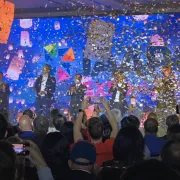






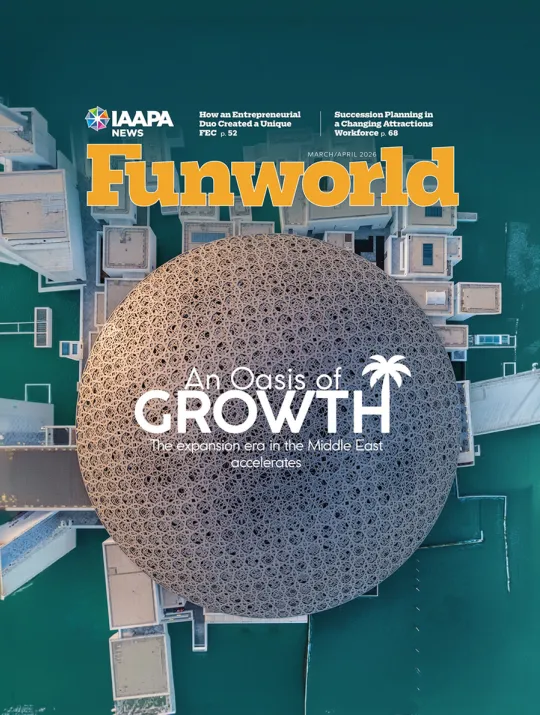
 The Official Magazine of IAAPA
The Official Magazine of IAAPA